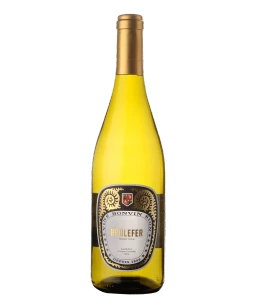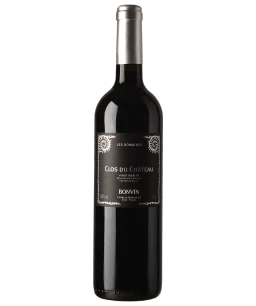Bonvin
High above Sion, on the Clos du Château, is the heart of the oldest wine trading house in Valais – today's winery Charles Bonvin SA. The view sweeps over the wide Rhone valley, meets the two castle hills of Tourbillon and Valère and grazes on the magnificent Valais vine landscape with its countless terraces.
In the mid-19th century, Valais was a poor area. The valley was largely marshland. The people, mostly farmers, mainly subsisted from agriculture and the dairy industry. The wineries were set up where nothing else could be grown. The vineyard was smaller than the one in Zurich and the yield was mostly for self-consumption. The Valais wine couldn't leave its borders, although it had been cultivated since Roman times.
White wines from Bonvin
Rosé wines from Bonvin
Red wines from Bonvin
Sweet wines from Bonvin
from Bonvin
An old Valais inheritance law also meant that ever-smaller parcels were created through division and wineries were torn apart thoughtlessly, for example when daughters inherited the vineyards but sons inherited the house and cellar.
Charles-Marie Bonvin (1833-1883) was obviously a unique kind of man: alert, industrious and cosmopolitan – qualities that were in the family genes. His grandfather had looked abroad for the best practices in terms of viticulture and grape varieties. His father was a grocer who had already tried to sell his wines "abroad", in the canton of Vaud and in Berne. The family owned enough land and vineyards: since time immemorial, it had set itself apart by not following the usual inheritance laws, and the family land has never been divided.
As a result, Charles-Marie Bonvin founded the company Charles Bonvin Fils, Vins du Valais, in Sion in 1858. Thanks to his tireless and courageous work, success was inevitable. To promote his wines, he presented them abroad in wine competitions, where he won numerous medals: in London (1862), in Paris (1867) and finally at home in Sion in 1871.
Charles-Marie's son and grandchildren steadily enlarged the company’s land ownership and wine trade. The result is a winery which today comprises 23 hectares, making it one of the biggest in the Valais, where 22,000 owners share approximately 5,000 hectares of vineyards.
Bonvin’s vineyards are spread across the estates of Brûlefer and Clos du Château in Sion, Plan Loggier in St-Léonard and Château Conthey in the municipality of the same name, around the ruins of the castle, as well as in Botza and Bassin in Vétroz. Only Bonvin grapes are pressed to make Bonvin wines. Recently, the historical Domaine de Diolly was added, although the vines are currently being replenished. In the next few years, the first wines from there are sure to stir up some curiosity.
The vines were always cultivated in a natural way, and Bonvin was known in the 1980s as one of the pioneers of integrated production in the Valais. Later, Bonvin went a step further by becoming a member of Vitiswiss, the Swiss association for sustainable production in viticulture. Vitiswiss pursues a holistic approach that is environmentally, socially and economically friendly. Vitiswiss’ guidelines extend from the wine itself to also cover cellar work and the entire operation. Vitiswiss has awarded the wines from Bonvin 1858 Les Domaines their Vinatura label. The company is certified Valais excellence, a certification based on the ISO standards for quality and environmental management, as well as social considerations. Bonvin has also campaigned to obtain the Swiss Climate label.
The Valaisian climate is ideal for vineyards. The winters are very cold, the summers hot and the autumns long and mild. The temperature fluctuations between day and night are quite pronounced. With around 2,000 hours of sunshine but only about 600 millimetres of rain a year, it is very dry, which can require at least partial irrigation of the vines. Previously, the suones – irrigation channels also known as bisses – served this purpose. Today, the precious water is distributed by modern drop irrigation systems. In addition, the vineyards in steep areas often have very little humus, with barren soil and limited water storage capacity. Due to the uplift in the Alps, the geological diversity between the Lower and the Upper Valais is enormous. The area around Sion is dominated by calcareous terroir and slate soils.
From the Clos du Château, a small path leads down to Sion in half an hour. It crosses the Domaine de Brûlefer, where the Guérite de Brûlefer is located. Here you can treat yourself to hearty Valaisian specialties and enjoy the stunning views with a sparkling Fendant and a palatable Clos du Château. Even with temperatures of 30 degrees in the shade, the mild and spicy raclette from Racleur Marcel are particularly tasty. The raclette cheese "affiné au Cornalin" is simply heavenly!
In 2014, the oldest wine trading house in the Valais received the nomination for the Swiss Winery of the Year at the Grand Prix du Vin Suisse in recognition of its tireless commitment to bringing this impressive wine region with its unique wines closer to wine lovers.
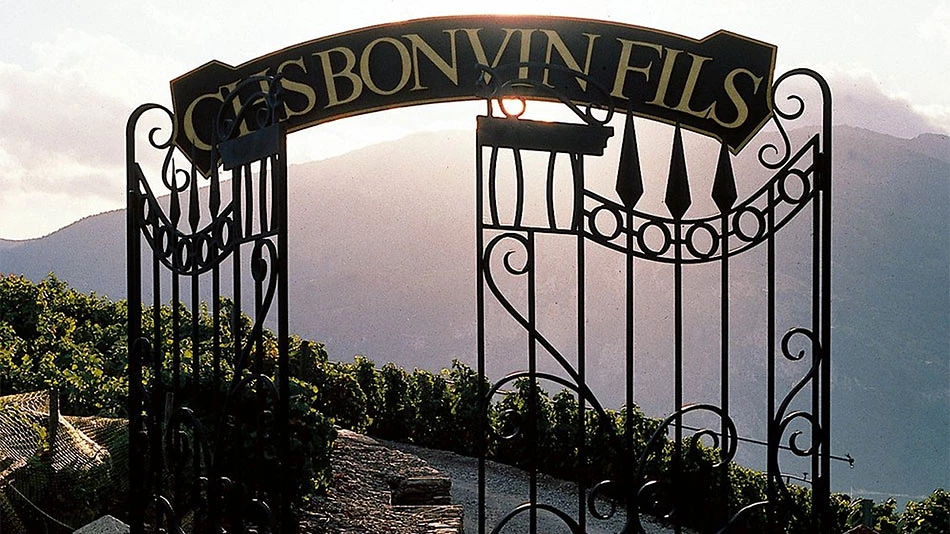
Producer
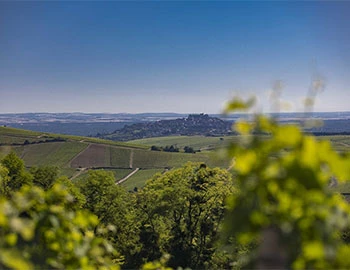
G. & J. Guillerault / Sebastian Fargette
Gilles Guillerault and Sébastien Fargette are based in Crézancy-en-Sancerre, a few kilometres west of Sancerre, in the Centre-Loire region. A lovely hilly landscape where vineyards alternate with charming villages. With around 2400 hectares of vineyards, Sancerre is a rather small wine-growing region. Only two grape varieties are cultivated, Sauvignon Blanc and Pinot Noir.
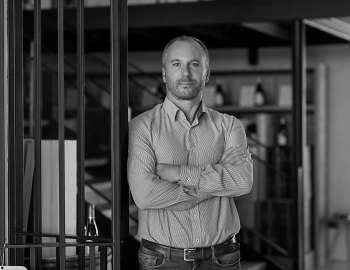
Domaine Julien Brocard
The seven vineyards - Chablis "naturally"
Julien Brocard's domaine is located in Préhy, just a few kilometres from the town of Chablis in northern Burgundy. The aim of the domaine is to bring out the true character of the wines without any distortion, and for this purpose the vines have been cultivated biodynamically since 2011.
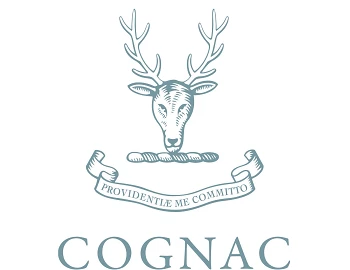
Park
For many years Baur au Lac Wines has been Switzerland's exclusive importer of the sumptuous Cognacs created by Dominic Park. The story goes back to the 1990s when Dominic Park decided to leave his job as a wine trader in London to create his own cognac house with the style he wanted. This is summed up by a very clean vision of what cognac should be: insist on the best origins and a very precise distillation and ageing to give a high-class product in a modern, elegant bottle.




